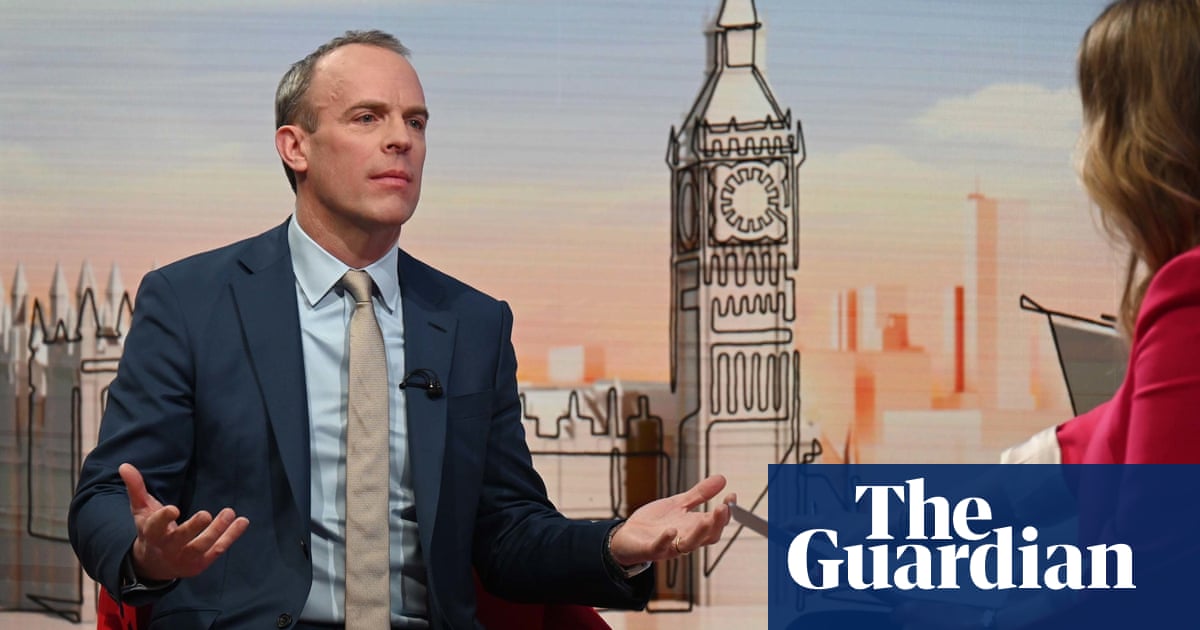
China’s treatment of the Uighur people amounts to torture, the British foreign secretary, Dominic Raab, has said as he set out measures designed to ensure no companies allow the use of forced labour from Xinjiang province in their supply chain. Deterrent fines will be imposed on firms that do not show due diligence in cleaning up their supply chains, he said.
The aim, he told MPs, was to “ensure no company that profits from forced labour in Xinjiang can do business in the UK, that no UK business is involved in their supply chains”.
He also proposed a review of export controls to Xinjiang province – the region in which tens of thousands of Uighur Muslims have been detained; new guidance to companies operating in the province; and a commitment that the Modern Slavery Act will be extended to the public sector.
Raab also said the government was reviewing the role of China’s Confucius Institutes operating in British academic institutions.
But the foreign secretary held back from imposing sanctions against any individual Chinese officials responsible for human rights abuses, saying “he will keep that in reserve”.
The tightening up of the Modern Slavery Act, including company-reporting requirements, largely follows the recommendations of a government-commissioned report, overseen by the MP Frank Field, and published in May 2019 that found many companies treated the act as a box-ticking exercise. Critics said the review merely imposes fines if companies with an annual turnover of more than £36m do not produce an annual report.
His package is likely to be seen as the bare minimum by critics of Chinese human rights, and will do little to stem a potential rebellion by those critics demanding that the government endorse amendments passed in the Lords that make human rights a central consideration in future trade deals.
Labour’s Lisa Nandy, the shadow foreign secretary, said the robustness of Raab’s words had not been matched by his actions, adding there was little that was new and “amounted to tinkering around the edges”. Far from going further than any other country, she said France had already gone further than the UK.
But the scale of Raab’s criticisms of China were striking, accusing the country of “extensive and invasive surveillance targeting minorities, systematic restrictions on Uighur culture, education, and the practice of Islam, and the widespread use of forced labour”. Satellite imagery showed the scale of the internment camps, the presence of factories inside them, and the destruction of mosques, he said.
Describing the position as harrowing, he added: “The nature and conditions of detention violate basic standards of human rights and, at their worst, amount to torture. Internment camps, arbitrary detention, political re-education, forced labour, torture, forced sterilisation.
All on an industrial scale. It is truly horrific. Barbarism we all hoped was lost to another era.”
He said he had discussed with the UN secretary general, António Guterres, UK proposals for a UN human rights commissioner to be allowed to go to the province to examine the allegations of forced labour. He said without such a visit it is difficult to determine if “the tenable plausible and credible reports of forced labour” were true, he said. China has rejected the proposal, prompting Raab to claim “China cannot simply refuse all access to those trusted third party bodies who could verify the facts, and at the same time maintain a position of credible denial”.
In the Commons, Raab came under the most pressure over whether he will give a role to UK Judges to make a pre-determination on whether genocide is being committed in Xinjiang, and if so, refuse to negotiate any free-trade agreement with China, a measure that has already been inserted into the trade bill in the Lords.
Critics say Raab’s current position leads to a cul de sac as the international courts are not able to determine if genocide is occurring due to China’s refusal to refer the issue to the international court of justice.
Luke de Pulford, of the Inter-Parliamentary Alliance on China, said: “The measures to tighten the Modern Slavery Act do not stop companies not telling the truth about slavery in their supply chains. Companies like HikVision and Huawei have been accused of helping Uighur oppression, but this issue is not addressed in their modern slavery statements, and these statements do nothing to address that.”
The China Research Group of Tory MPs welcomed the plans to review the UK’s export controls.












